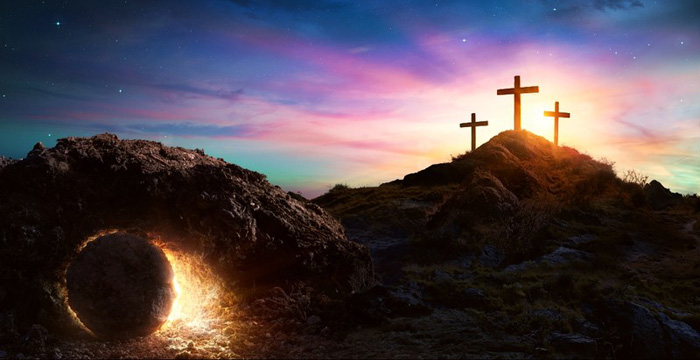On Parliament Hill
Celebrating the Resurrection of Jesus Christ

This Sunday (and next), Christians from around the world will gather to celebrate the focal point of the Christian faith: the resurrection of Jesus Christ.
Western Christians, including Roman Catholics, Protestants and Evangelicals celebrate this weekend, while members of the Eastern Orthodox, and Coptic Churches celebrate “Pascha” (Aramaic – the language Jesus spoke – for Passover) a week later, in accordance with the practice of the most ancient Church.
Holy Week begins on Palm Sunday: a commemoration of Jesus’ triumphal entry into Jerusalem. Usually, this day is celebrated by reenacting the crowds’ response to Jesus, waving palm branches, and echoing their shouts of “Hosanna” (“save now”).
Some Western Christians will also observe Maundy Thursday – from the Latin “Mandatum novum do vobis” (“a new commandment I give to you”). Many Christians will take communion on this night as they remember the last supper and Jesus’ commandment to his followers to “love one another”.
After the last supper, Jesus and the Apostles went to a nearby garden called Gethsemane. It was here Jesus prayed, and here that he was betrayed by one of his closest friends.
Jesus was arrested, tried, scourged (whipped and beaten nearly to death) then taken away to be crucified.
On Good Friday, Christians commemorate Jesus’ death on the cross.
On the cross, Jesus Christ, God in human flesh, died for the sins of all humanity, to bring forgiveness, healing, and wholeness to humanity.
Following the crucifixion, Jesus was placed in a tomb, sealed with a large stone. His body rested in the tomb for the Sabbath day, Saturday.
Early on the morning of the third day, a group of women came to the tomb to prepare his body for burial. When they arrived, they found the stone had been rolled away and the tomb was empty. They were greeted by an angel who told them Jesus was not there: that he had risen from the dead, as he, himself, had foretold.
The women rushed to tell the Apostles the good news.
After this, Jesus appeared to the Twelve, and as many as five hundred of his followers, and established the foundation of his kingdom, the Church – based on belief in the historical event of his resurrection – before his ascension back into heaven.
Almost immediately, the earliest Christians began to commemorate the events of Jesus life, in particular his death and resurrection, with special feast days.
Ancient Christian writings from as early as the mid-second century – within one hundred years of the resurrection – show this festival, celebrating Resurrection Sunday, was already well established by that time.
For nearly two thousand years, this cycle of remembrance, celebration and worship has been carried out by the Christian Church.
I believe Jesus rose from the dead, making new life possible for all who believe.
New life is what the Easter season is all about.
The resurrection is the source of hope for billions of people around the globe.
I know the story of Jesus and his message of love, forgiveness, hope, peace, and wholeness will be a comfort to all who read and experience it. As will the ability to, once again, gather in churches and with family to celebrate this most special of holidays, together.
To all my constituents, from my family to yours, best wishes for a blessed Easter.




